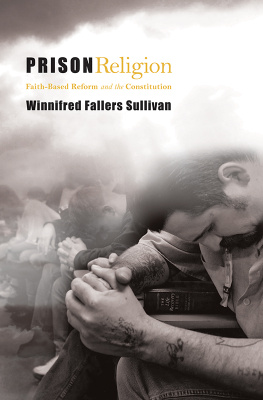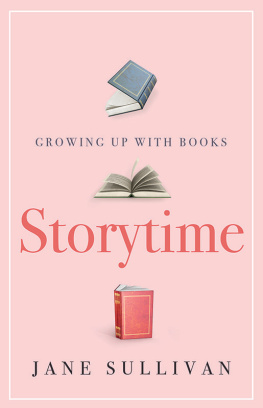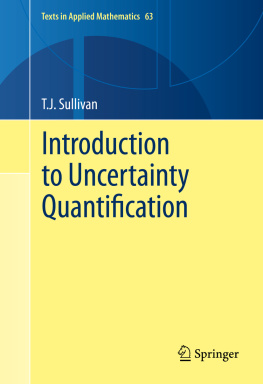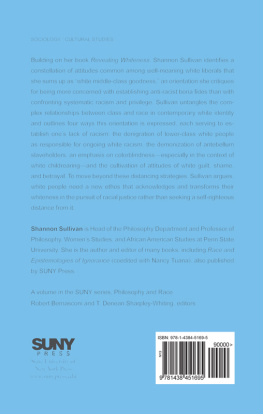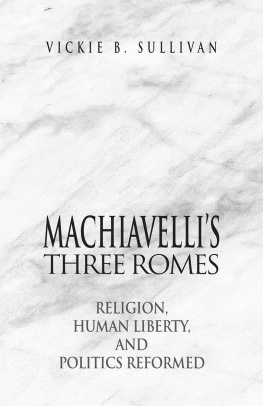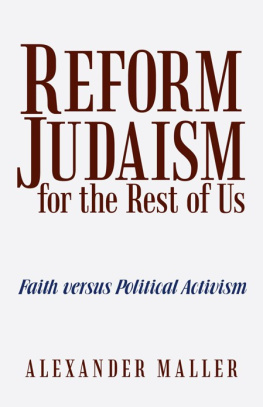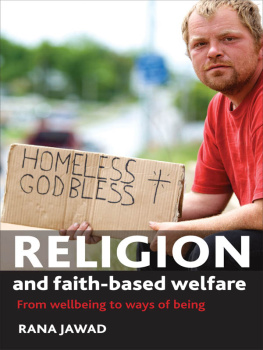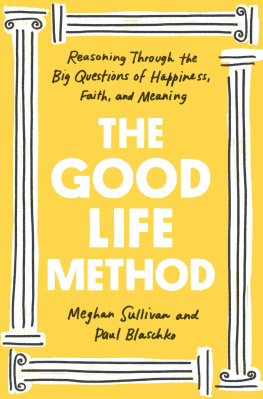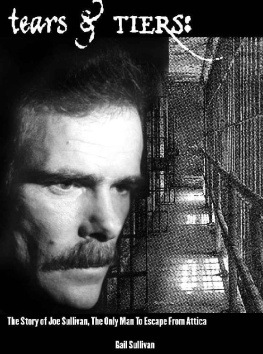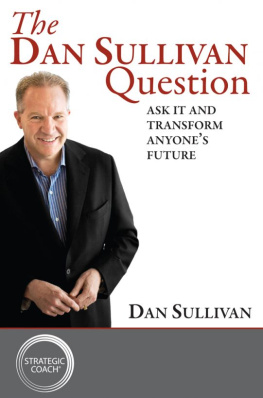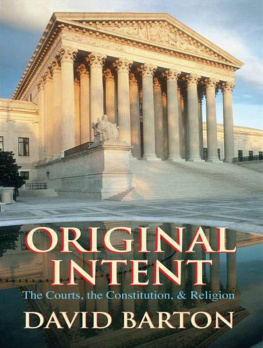Sullivan - Prison Religion Faith-Based Reform and the Constitution
Here you can read online Sullivan - Prison Religion Faith-Based Reform and the Constitution full text of the book (entire story) in english for free. Download pdf and epub, get meaning, cover and reviews about this ebook. publisher: Princeton University Press, genre: Religion. Description of the work, (preface) as well as reviews are available. Best literature library LitArk.com created for fans of good reading and offers a wide selection of genres:
Romance novel
Science fiction
Adventure
Detective
Science
History
Home and family
Prose
Art
Politics
Computer
Non-fiction
Religion
Business
Children
Humor
Choose a favorite category and find really read worthwhile books. Enjoy immersion in the world of imagination, feel the emotions of the characters or learn something new for yourself, make an fascinating discovery.
- Book:Prison Religion Faith-Based Reform and the Constitution
- Author:
- Publisher:Princeton University Press
- Genre:
- Rating:3 / 5
- Favourites:Add to favourites
- Your mark:
- 60
- 1
- 2
- 3
- 4
- 5
Prison Religion Faith-Based Reform and the Constitution: summary, description and annotation
We offer to read an annotation, description, summary or preface (depends on what the author of the book "Prison Religion Faith-Based Reform and the Constitution" wrote himself). If you haven't found the necessary information about the book — write in the comments, we will try to find it.
Prison Religion Faith-Based Reform and the Constitution — read online for free the complete book (whole text) full work
Below is the text of the book, divided by pages. System saving the place of the last page read, allows you to conveniently read the book "Prison Religion Faith-Based Reform and the Constitution" online for free, without having to search again every time where you left off. Put a bookmark, and you can go to the page where you finished reading at any time.
Font size:
Interval:
Bookmark:
AND THE CONSTITUTION
PRINCETON AND OXFORD
Copyright 2009 by Princeton University Press
Published by Princeton University Press, 41 William Street,
Princeton, New Jersey 08540
In the United Kingdom: Princeton University Press, 6 Oxford Street,
Woodstock, Oxfordshire OX20 1TW
All Rights Reserved
Library of Congress Cataloging-in-Publication Data
Sullivan, Winnifred Fallers, 1950
Prison religion : faith-based reform and the constitution / Winnifred Fallers Sullivan.
p. cm.
Includes bibliographical references and index.
ISBN 978-0-691-13359-1 (hardcover : alk. paper) 1. Americans United for
Separation of Church and StateTrials, litigation, etc. 2. InnerChange Freedom InitiativeTrials, litigation, etc. 3. Prison FellowshipTrials, litigation, etc. 4. Religious work with prisonersLaw and legislationUnited StatesCases. 5. Church and stateUnited StatesCases. 6. CriminalRehabilitationIowa. 7. IowaTrials, litigation, etc. I. Title.
KF228.A653 .S85 2009
344.7303'566dc22
2008027764
British Library Cataloging-in-Publication Data is available
This book has been composed in Sabon
Printed on acid-free paper.
press.princeton.edu
Printed in the United States of America
10 9 8 7 6 5 4 3 2 1
C HAPTER 1
The God Pod
C HAPTER 2
A Prison Like No Other
C HAPTER 3
Biblical Justice
C HAPTER 4
The Way We Live Now
C HAPTER 5
Beyond Church and State
I N RESEARCHING AND WRITING this book I have had the generous support of many institutions and individuals. Co-extensive fellowships at the American Bar Foundation and the Martin Marty Center at the University of Chicago Divinity School gave me the time and space, and collegial companionship, to make a wonderful start on the ideas for this book. Moving back and forth between these two exceptional communities kept me honest as a student of both law and religion. I am particularly grateful to Bob Nelson and Wendy Doniger, directors of these two research centers for that year. A year following at the National Humanities Center, with the support of the Lilly Foundation, enabled the bulk of the writing. The National Humanities Center (NHC) has created the perfect space for academic writing; the understated attention to detail and the quiet collegiality of its Fellows Program, under the gentle and intelligent leadership of Kent Mulliken and Geoffrey Harpham, is unmatched. I am also grateful to Dean Nils Olsen, who enthusiastically gave me the ability to accept the NHC fellowship in my first year on the faculty of the University at Buffalo Law School.
I had the opportunity over the last year to test these ideas at three faculty workshops: the Legal Theory Workshop at Columbia Law School, the Religion in America Seminar at Columbia University, and the Book Manuscript Workshop at the Baldy Center for Law and Social Policy. All three were occasions that significantly helped me to see how my argument was being heard and thus to improve its presentation. John Bartkowski and Philip Hamburger, as formal respondents at the Baldy workshop, were particularly generous and helpful in their critiques of the manuscript.
The friendship and support of many friends, family, and colleagues who willingly read drafts, talked about the book endlessly, cheered me on, or perhaps just unwittingly gave me courage, was indispensable. I thank Dan Arnold, Dianne Avery, Celia Brickman, Alexandra Brown, Mary Anne Case, John Comaroff, David Engel, Margaret Fallers, Clark Gilpin, Sarah Barringer Gordon, Terry Hallisey, Philip Hamburger, Sally Hughes, Julie Ingersoll, Rebecca Janowitz, Stanley Katz, Fred Konefsky, Beth Lamanna, Cynthia Lindner, Tomoko Masuzawa, Lynn Mather, Elizabeth Mensch, Elizabeth Mertz, Helen Newlin, John Parry, Martin Riesebrodt, Connie Rosati, Heather Miller Rubens, John Schlegel, Susan Schreiner, J. Z. Smith, Brin Stevens, George Sullivan, Lloyd Sullivan, Mateo Taussig, Rachel Weil, and Robert Yelle. Their care and generosity is without peer. Aparnaa Bhatt, Allison Mull, and Heather Miller Rubens served ably as research assistants.
But, most important, I thankagainmy friend, colleague, and teacher, Frank Reynolds. I feel most fortunate to be his student.
I also benefited greatly from the careful and thoughtful responses of the anonymous reviewers for Princeton University Press and the encouragement of Fred Appel, religion editor for the Press.
N OTE ABOUT S OURCES
This book is based on my reading of the public record in the trial. I had no private access to the trial witnesses.
N OTE ABOUT B IBLICAL T RANSLATION
The evangelical Christians who are the subject of this study orient their lives around readings of the Bible in a distinctive way. Although there is an elite evangelical tradition of reading scripture in the original languages, for the purposes of lay religious practice, the Bibles read by American evangelicals are in English. No single translation is used by all conservative American Christians or is considered uniquely authoritative. I have sometimes provided alternative versions of certain verses from widely used translations in order to call attention to the role played by modern American English versions in the formation of contemporary Christianity. I do not evaluate the relative merits of these translations from a theological or linguistic standpoint. From a scholarly point of view, what is termed The Bible in a devotional context is not a unitary text but rather a complex collection of texts, edited over millennia, possessing no single, authoritative interpretation in all times and places. The easily available online translations of the biblical texts today make it possible for anyone with Internet access to view those texts in the ancient languages in which they were written and compare translations of those texts.
W HAT IS THE FAITH IN faith-based? After ten years of public policy promoting the greater integration of faith-based organizations into the ranks of government funded social service providers, the nature and role of faith in this effort remains elusive. This book takes a close look at a recent trial concerning one such faith-based provider with a view to understanding better what faith-based reform is about and why so many Americans think it makes sense.
In December 2006, in Des Moines, Iowa, a U.S. District Court judge found unconstitutional a faith-based, in-prison rehabilitation program operating in the Newton Facility of the Iowa Department of Corrections, a program known as InnerChange Freedom Initiative (IFI). The Iowa Department of Corrections finally terminated its contract with InnerChange on March 10, 2008. (IFI programs are currently present in the prisons of five other states: Arkansas, Kansas, Minnesota, Missouri, and Texas. Private faith-based prison programs managed by other religious groups also exist in many states. Some states, including Florida, have initiated their own state-run, in-prison, faith-based programs. Because of variations in contracting arrangements, the effect of the Iowa courts decision on these other programs remains unclear.)
AU v. PFM is acknowledged to be one of the most significant recent court cases considering the application of the establishment clause of the First Amendment to the U.S. Constitution to the new faith-based social services. A legal and social climate substantially more hospitable to government/religion partnership than in the recent past has made possible an increase in the number of government contracts with private, faith-based social service providers, particularly those operating in prisons. Through a close reading of the background and events of the trial in
Font size:
Interval:
Bookmark:
Similar books «Prison Religion Faith-Based Reform and the Constitution»
Look at similar books to Prison Religion Faith-Based Reform and the Constitution. We have selected literature similar in name and meaning in the hope of providing readers with more options to find new, interesting, not yet read works.
Discussion, reviews of the book Prison Religion Faith-Based Reform and the Constitution and just readers' own opinions. Leave your comments, write what you think about the work, its meaning or the main characters. Specify what exactly you liked and what you didn't like, and why you think so.

